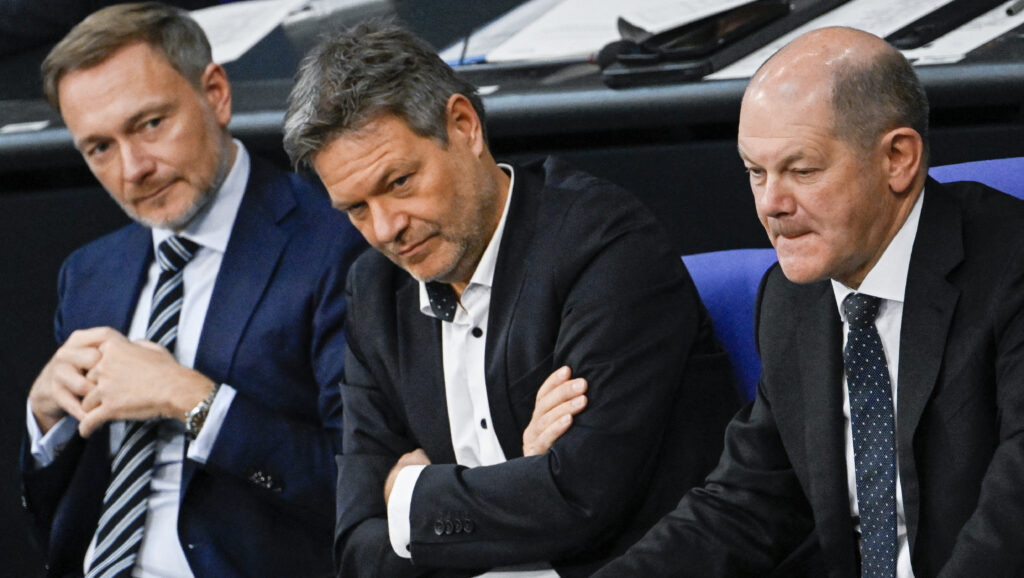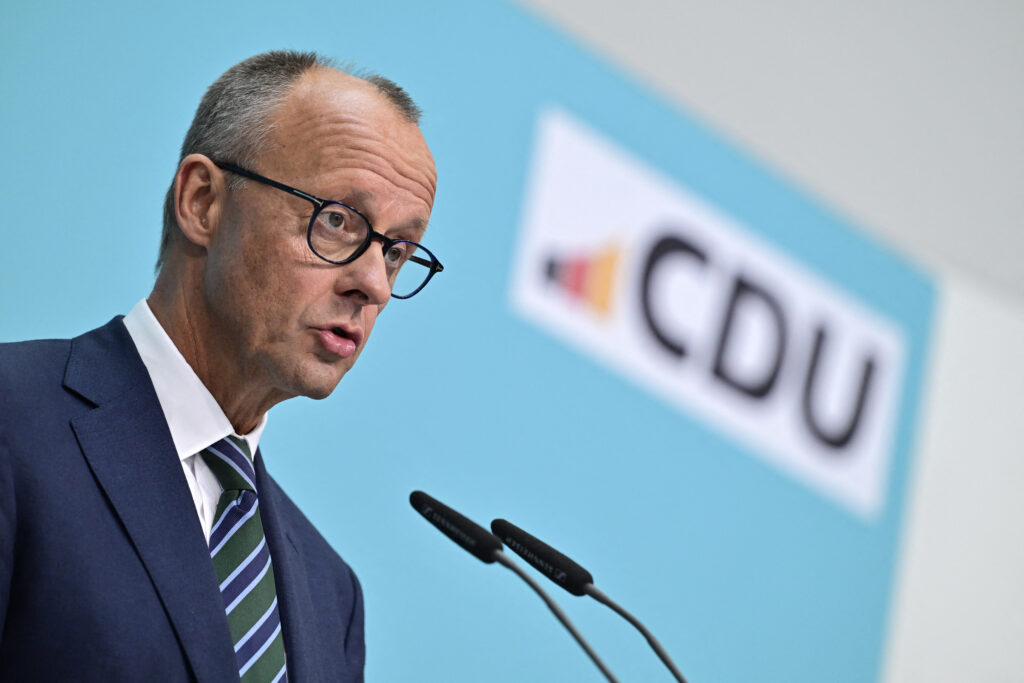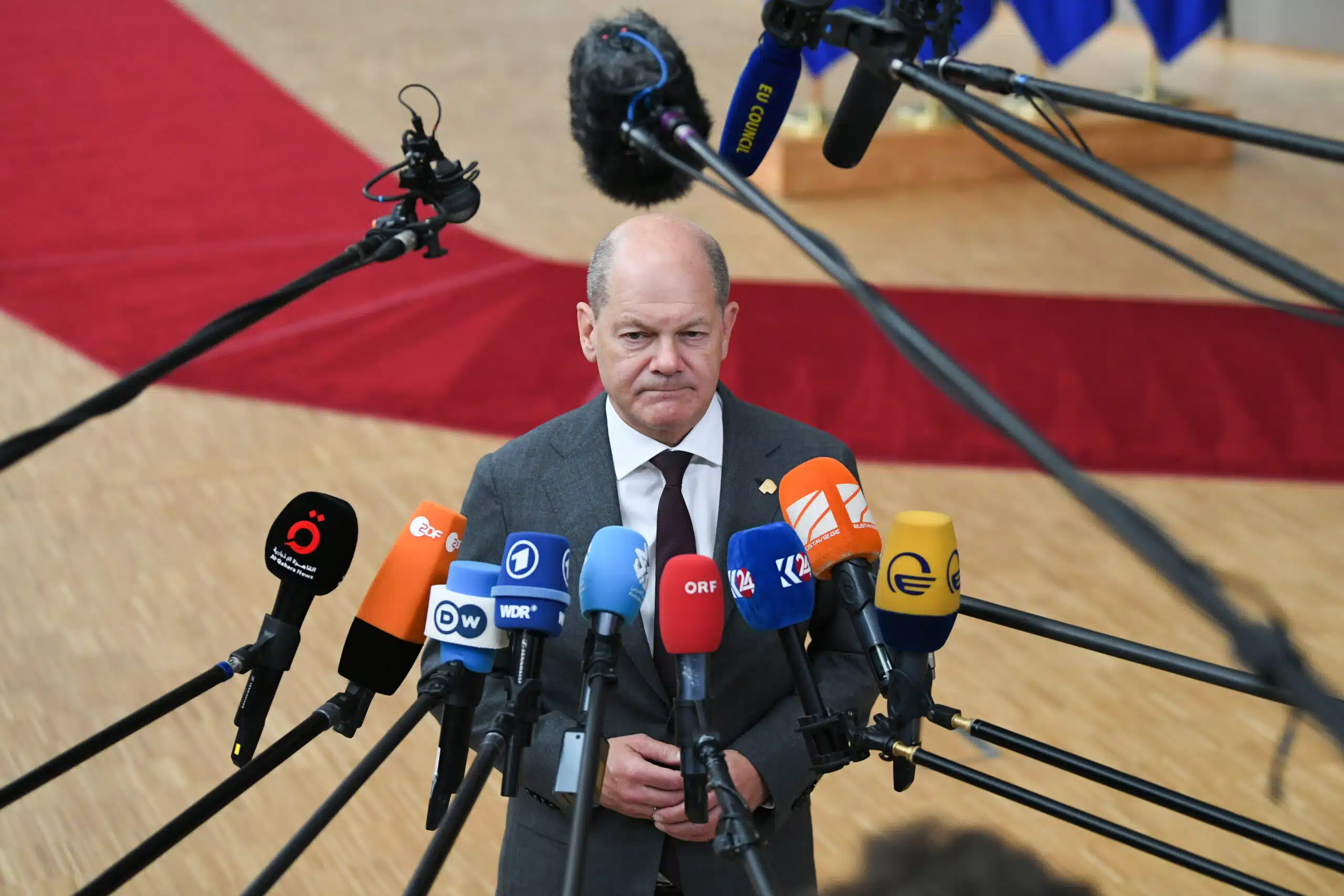Brussels – Distrust it is. Olaf Scholz and his government, with 207 votes in favour, 394 against, and 116 abstentions, have lost the confidence of the Bundestag, the German parliament, paving the way for the elections long-scheduled for Feb. 23.
It was precisely the Bundestag the scene of the decision on the fate of Chancellor Olaf Scholz’s government, with a no-confidence vote so that President of the Republic Frank-Walter Steinmeier can dissolve the government within 21 days and elections be held within 60 days, in the already chosen deadline.
Technically, Scholz’s “kamikaze move” is called constructive distrust. Historically, it originated in the German Constitution of 1949, to avoid the political instability characteristic of the Weimar Republic. With this vote, it is possible to have the Bundestag assess confidence in the chancellor and his government, withholding support if there are adequate numbers to support a new governing majority option. In Germany, however, this has never been the situation, so Scholz has, according to the Constitution, put a vote on his own government on the agenda.
The “traffic light” coalition no longer works
It seems a curious choice to want to have one’s own government challenged, but the reasons can be traced to the majority crisis that caused Scholz’s government to collapse. The famous “traffic light coalition” (red for the SPD Social Democrats, yellow for the FDP Liberals, and green for the ecologists) stopped working in early November, so much so that, after the government fall, Scholz was left with a minority government. The German-style “triumvirate” that has ruled the Federal Republic since 2021 has not withstood the pressures of differing economic outlooks, collapsing after Scholz’s Nov. 6 decision to discharge Finance Minister Christian Lindner, leader of the FDP.

The bone of contention would have been Lindner’s “categorical no” to declaring a state of financial emergency, which would have been useful in eliminating “debt ceiling” rules. FDP rigorism did not tolerate this proposal, incompatible with one of the liberals’ red lines. SPD and Greens, more inclined to substantial state interventions and large investment plans, simultaneously did not accept FDP’s proposal to sacrifice social programs to have liquidity for military programs.
Splits too pronounced to reach an agreement and exacerbated by a conjuncture of factors, such as the energy and economic crises, the state budget in extreme difficulty and, in no small part, the sound defeat of all three majority forces in the federal elections in Saxony, Thuringia, and Brandenburg.
Bundestag theatre of discussion
The Greens, as announced, abstained from the confidence vote. The distrust from Scholz’s “enemies” was clear, both from the far-right of Alternative für Deutschland (AfD) and the centre-right CDU/CSU Union. During the pre-vote debate, Scholz ended up on the entire opposition’s grill for stalling too long on the trust issue.

The leader of the Cdu, Friedrich Merz (photo: John McDougall/AFP)
The outcome of the outgoing government is “one of the worst economic crises in the postwar period” for Friedrich Merz, leader of the Union and currently favoured in the polls to lead the country. Not only economic issues but also criticism of conduct at the European level described as “embarrassing” by Metz. Scholz’s call to Russian President Putin, condemned even by the European Parliament, does not seem to have been forgotten and caused more than a few discontents, albeit in its diplomatic intent.
“You had your chance; you didn’t take it,” Merz continued. Also from the Union, in the words of CSU regional group leader Alexander Dobrindt, came another vitriolic comment for Scholz, whose choice to run again was called “grotesque”.
Scholz has accepted defeat, partly orchestrated by himself. All that is missing is the green light from the President of the Republic Steinmeier to dissolve Parliament and confirm the date of February 23, 2025. It is highly unlikely that Steinmeier will refuse to accept the Bundestag’s no-confidence, so everything seems to be going according to the plans of the now-former federal chancellor. Miracle wanted, as in 2021, to defy all downward SPD election polls and, in a little more than two months of campaigning, reinforce the credibility of the party and Chancellor Scholz. Otherwise, Germany could fall to the centre-right or the far-right AfD, with risks to European democracy not to be underestimated.
English version by the Translation Service of Withub







![[foto: archivio]](https://www.eunews.it/wp-content/uploads/2018/02/inflazione.jpg.webp)


